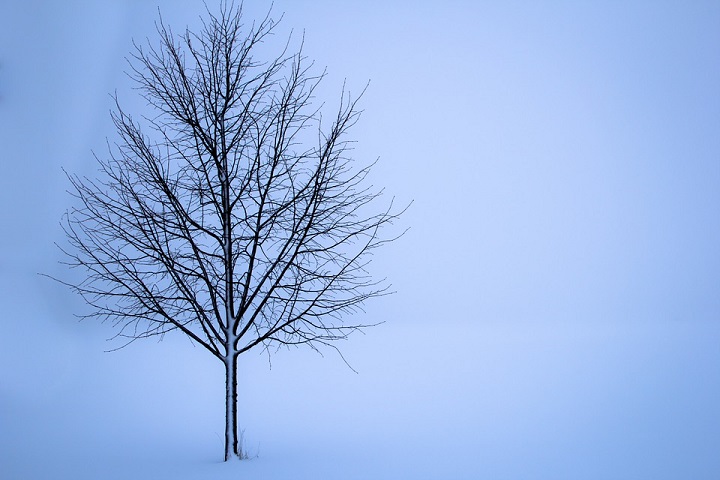Japanese knotweed may appear to die during the cold winter months, but it's probably still alive and lying dormant beneath the soil.

As the calendar cascades from shimmering summer to auburn autumn and beyond, the weather naturally starts to get colder.
In fact, as soon as the clocks go back, it's not unusual for the temperature to drop faster than a microphone at a rap battle.
While the frosty cold and bitter chill can be a stark reminder that summertime has indeed been consigned to history, it does have its perks - particularly when it comes to garden weeds.
Most garden weeds will die out during the wintertime and spend the cold months either biting the dust or kicking the bucket - either way, few tears will be shed in remembrance.
But does Japanese knotweed die off in winter as well? Let's find out...
To Have and Have Knot
Anyone unlucky enough to have fallen foul of Japanese knotweed in the first place has likely been left frustrated to the point of nausea by the relentless persistence of the wicked weed.
However, the summertime supremacy of this invasive species does recede during the winter, losing its leafy greens and taking on a far less intimidating brittle brown appearance.
While this may seem to be a welcome reprieve for gardeners, don't let this faux farewell fool you.
Battle-tested knotweed veterans will know that this is all a clever ruse, perpetrated by the pesky plant to lull you into a false sense of security.
What Lies Beneath
Though Japanese knotweed may appear to die in winter, appearances can be deceiving.
While the colour may change and the canes may recede, a death this certainly is not. Sadly, the wintertime is merely a power-nap for Japanese knotweed, and sooner or later, the plant will rear its ugly head once more.
Such a miraculous resurrection might seem almost unfathomable, but this is no miracle. Despite the frail shoots, the knotweed rhizomes remain healthy and virtually unscathed beneath the soil and merely lay dormant in the ground throughout the winter period.
As winter turns to spring, your Japanese knotweed will rise once more like a phoenix of frustration from the ashes, ready to unleash its wrath on your garden once more.
Treating Japanese Knotweed in Winter
If you have Japanese knotweed present in your garden, why not give yourself an early Christmas present and serve your unwanted guest a festive eviction notice?
At Total Weed Control, our weed-whacking warriors are armed to the teeth with an itchy trigger finger to match - they're ready, willing and able to blow your knotty no-goodnik to smithereens.
With over 15 years of experience in the weed removal game, we have the power to banish the vexatious vine from whence it came. All you have to do is ask!
Request a FREE Japanese knotweed survey
